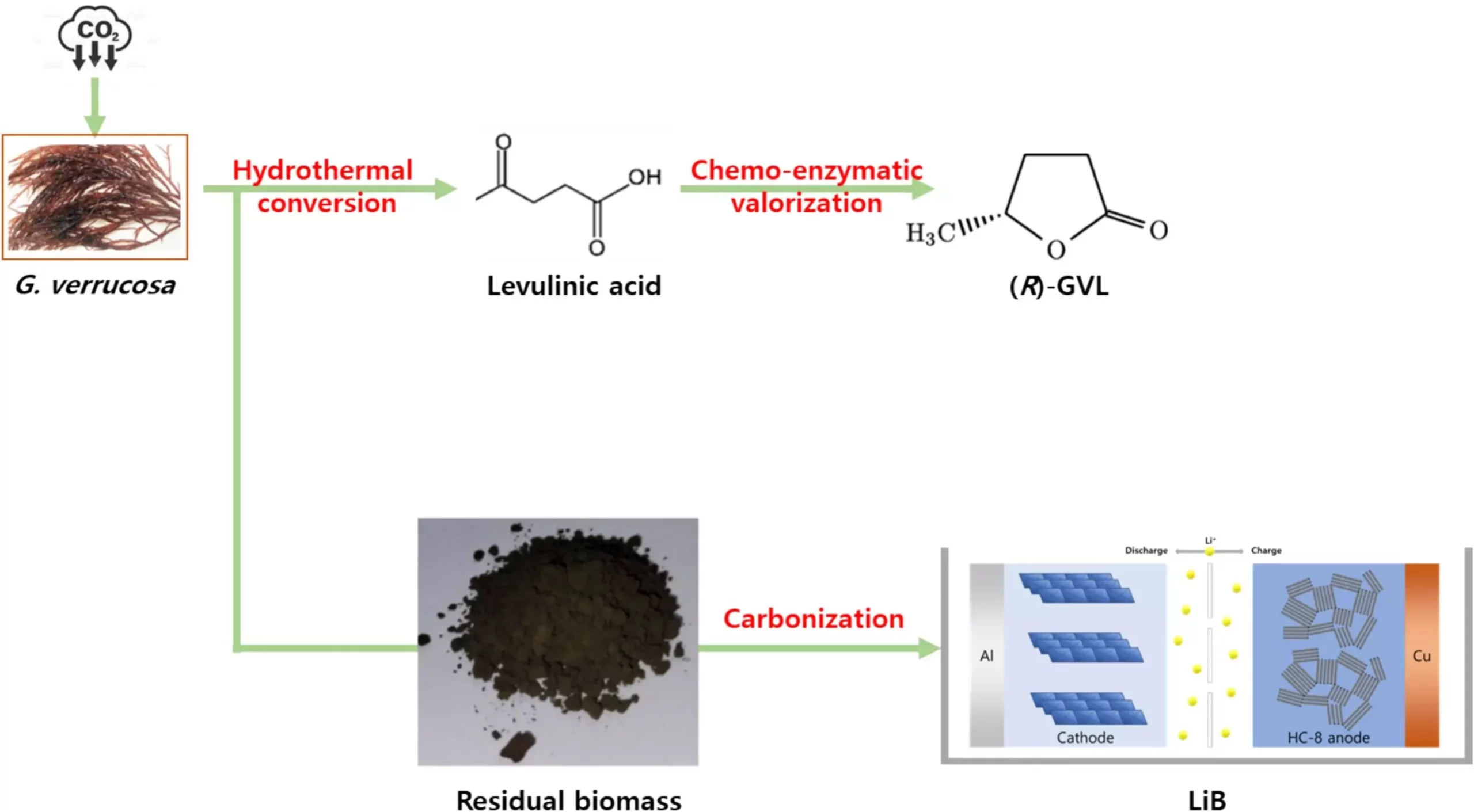Recent advancements in the field of sustainable technology have illuminated a unique avenue for reducing reliance on fossil fuels: the utilization of seaweed as a renewable resource. Dr. Kyoungseon Min and her research team at the Gwangju Clean Energy Research Center, in collaboration with Kangwon National University, have developed an innovative process that transforms common seaweeds, such as Kkosiraegi, into valuable inputs for bio-aviation fuels and energy storage. This significant breakthrough, detailed in the Chemical Engineering Journal, opens new doors toward a greener future.
The utilization of marine biomass, specifically seaweed, in the production of biofuels not only addresses energy needs but also presents an opportunity to reduce greenhouse gas emissions. Indeed, bio-aviation fuel derived from these organisms can lead to emissions reductions of up to 82% compared to conventional aviation fuels. With the eco-friendly fuel market anticipated to constitute around 35% of the total aviation fuel sector by 2070, this research is remarkably timely.
In the current landscape of bio-fuel production, the sugar-to-jet technology stands out due to its capacity for significant greenhouse gas reductions. This method transforms biomass into fermentable sugars, which are subsequently converted into biofuel precursors through microbial fermentation. However, the complexity and high costs associated with the pre-treatment processes still pose challenges, as it is estimated that only around 15% of fermentable sugars are effective in producing precursors.
Addressing these inefficiencies, Dr. Min’s team has pioneered a levulinic acid-based process that simplifies production through a one-step enzymatic reaction. This allows for the direct conversion of seaweed into levulinic acid using merely an acidic treatment, setting the stage for generating (R)-gamma-valerolactone (GVL)—a sought-after biofuel precursor—with heightened efficacy. The standout feature of this method is its capacity to yield ten times more precursor from the same biomass compared to traditional techniques.
Enantioselectivity is a critical factor in the production of bio-aviation fuel. While conventional methods may generate a mixture of optical isomers, the specific (R)-form of GVL holds more promise for various applications, including biopharmaceuticals—specifically in hypertension treatments. Until now, the challenge has been the lack of reliable technology to selectively produce this isomer. The engineered enzymes developed by Dr. Min’s team now enable the production of (R)-GVL with an impressive accuracy of over 99.999%.
This level of precision opens doors for the utilization of (R)-GVL not only in the fuel sector but in the lucrative biopharmaceutical market as well. For pharmaceuticals, the ability to selectively produce optically pure compounds is crucial, as it directly influences efficacy and safety in medical applications. This technological achievement represents a pivotal moment in transitioning the seaweed-derived compounds from potential to practical use within high-value industries.
The innovation continues beyond biofuel production. The by-products of this process—the leftover Kkosiraegi residues—have been identified as promising candidates for use in lithium-ion batteries. Through a carbonization process, the research team successfully converted these residues into “hard carbon,” a viable anode material. Their experimental analysis revealed compelling results, confirming the effectiveness of this newly developed material in enhancing the performance of lithium-ion batteries.
With global demand for energy storage poised to rise significantly, exploring waste materials from biofuel production as raw materials for battery technology reveals the holistic potential of this research. By maximizing efficiency and minimizing waste, the project epitomizes sustainable practices in line with global energy transitions.
Dr. Min noted Korea’s unique geographical advantage, with its vast coastline fostering abundant seaweed resources. This positioning not only supports local industries but also enhances the nation’s ability to lead in innovative biofuel technologies. The implications of these advancements extend well beyond domestic applications—a robust biofuel infrastructure could position Korea as a significant player in the global biofuel market, tapping into eco-conscious nations and organizations looking to reduce their carbon footprints.
Dr. Kyoungseon Min’s research propels us closer to a sustainable energy future, effectively transforming seaweed from a simple culinary ingredient into a powerhouse of bioenergy potential. As we move towards a greener era, embracing such innovations will be crucial in meeting our energy needs while mitigating environmental impacts. The advances elucidated in this study not only represent a technical triumph but also a beacon for future research in renewable energy and the circular economy.


Leave a Reply